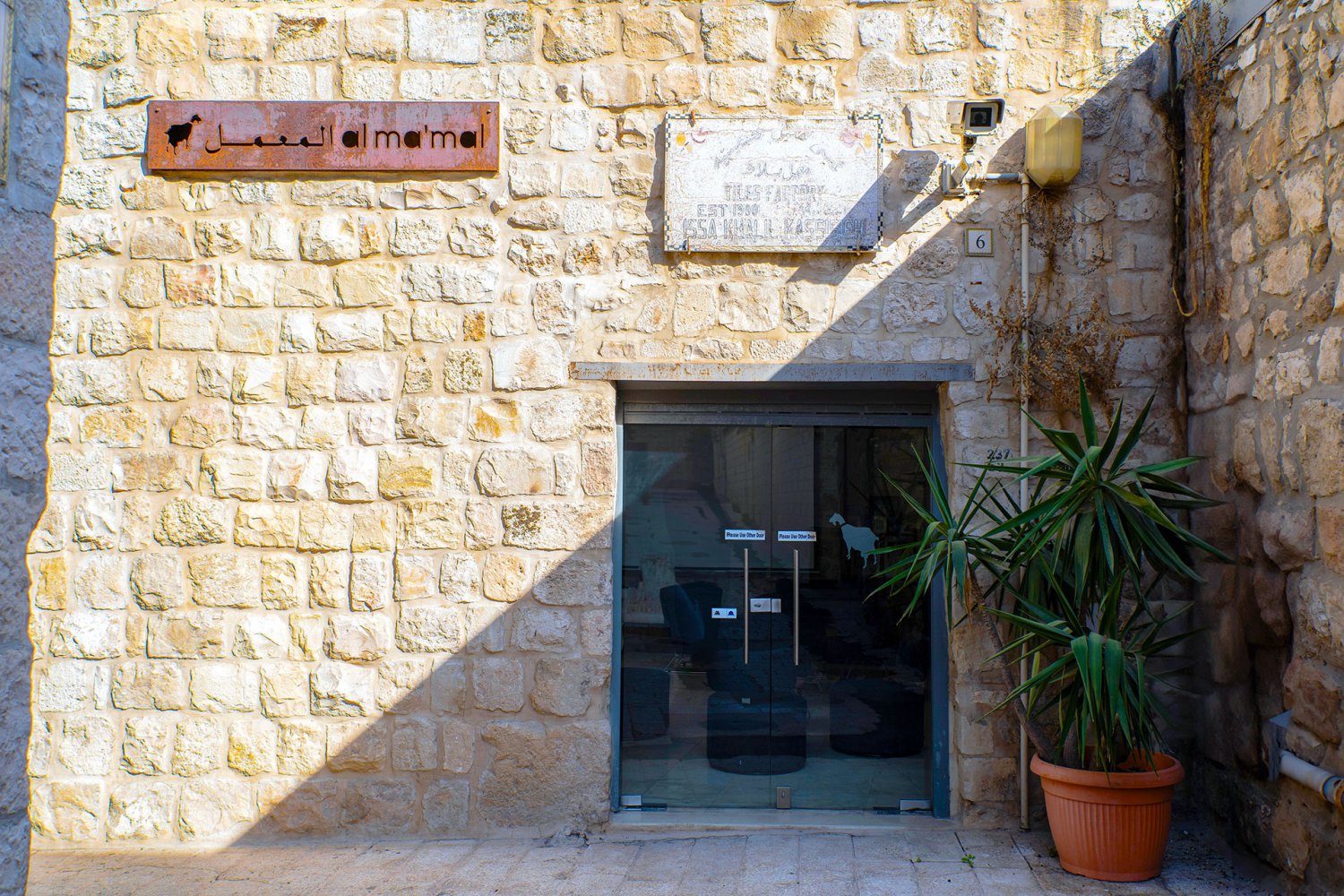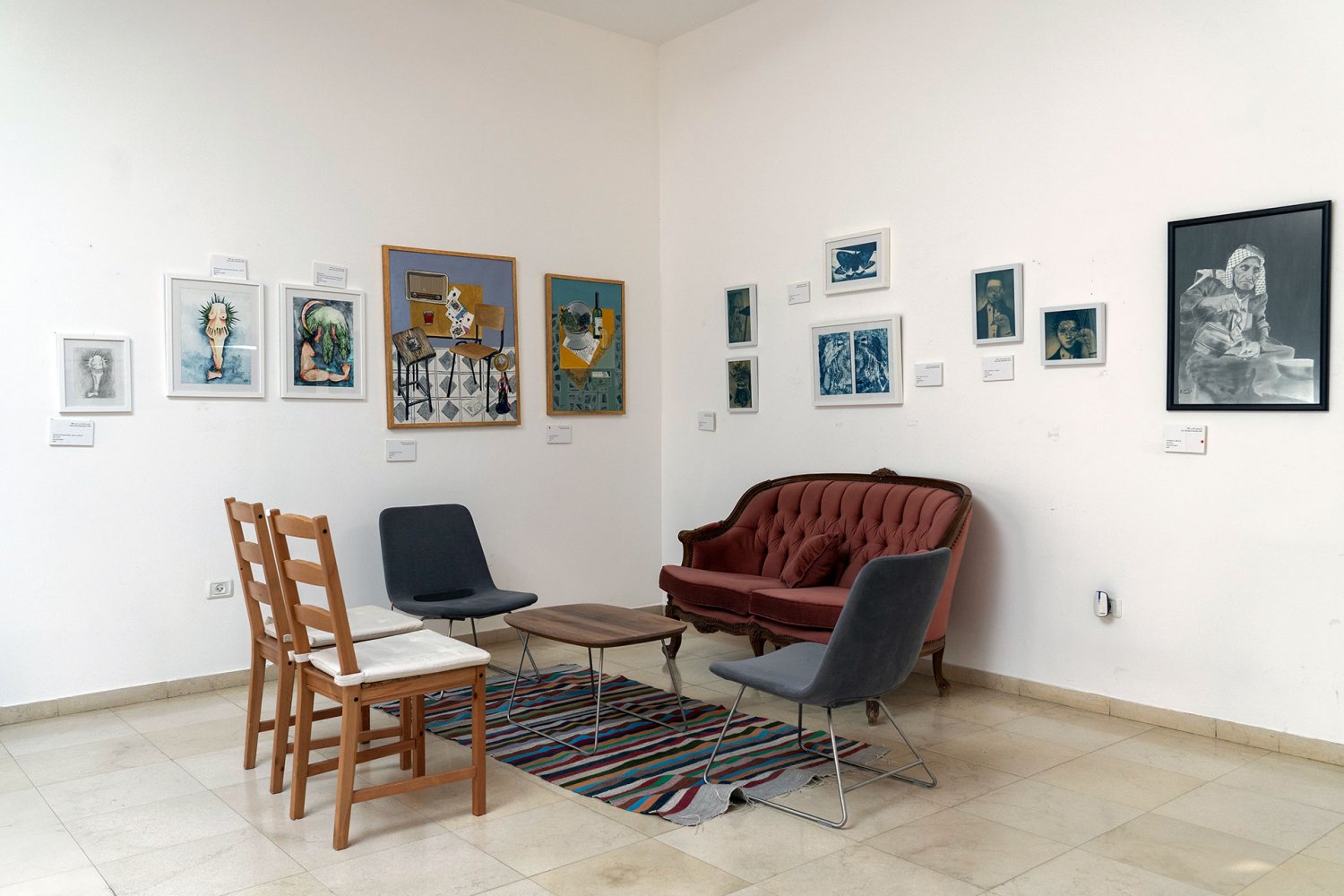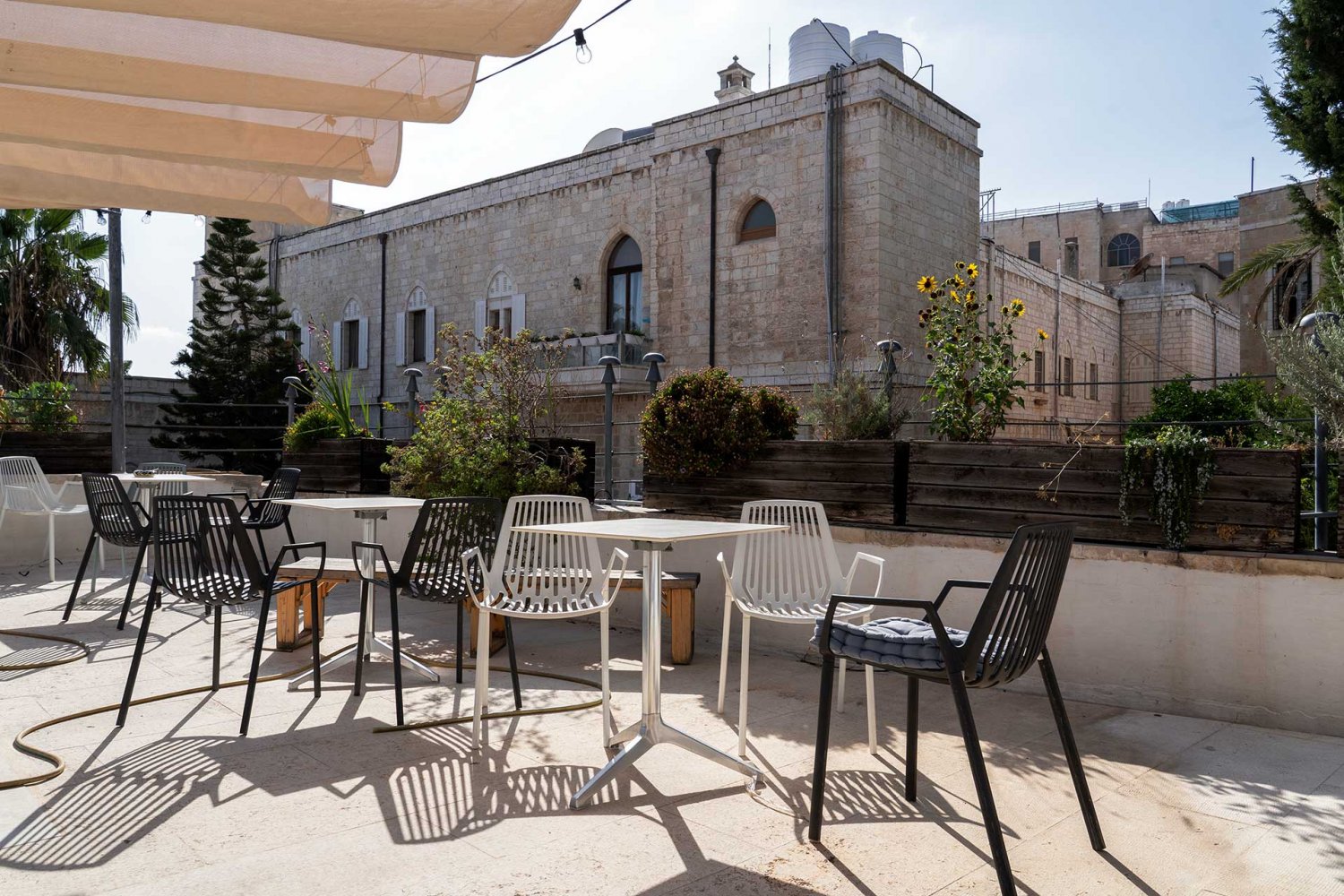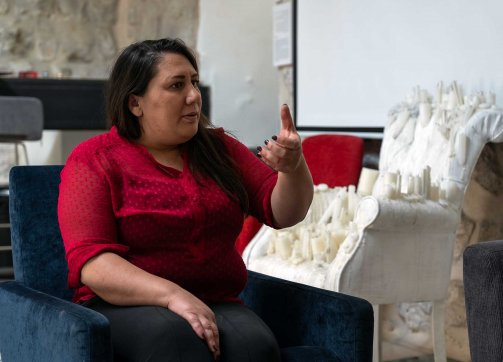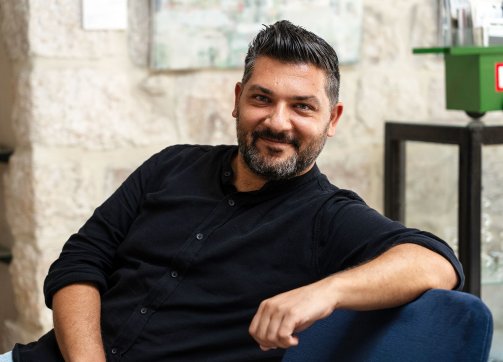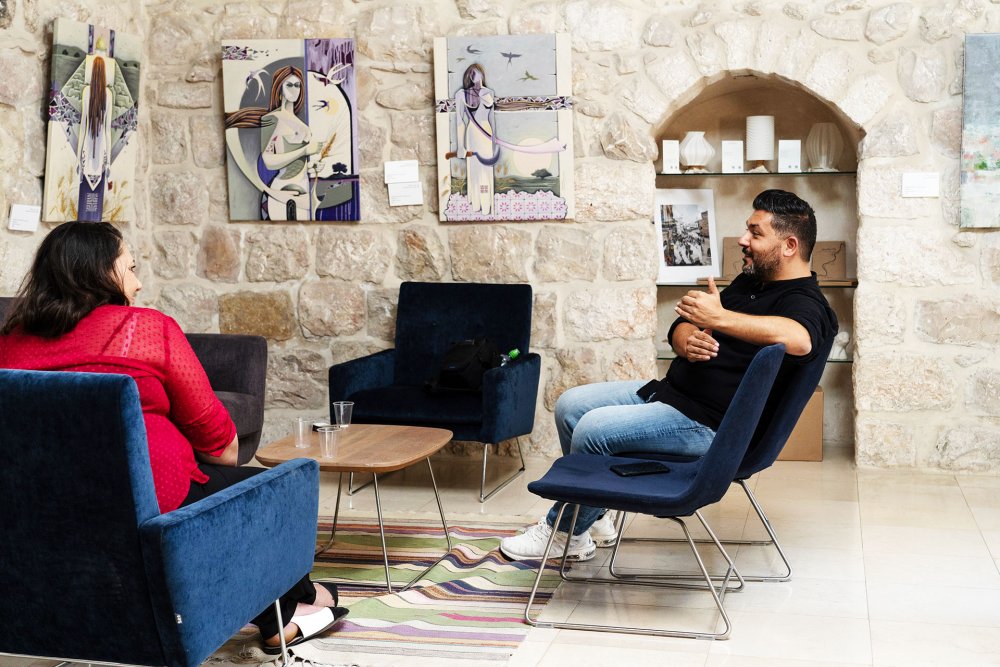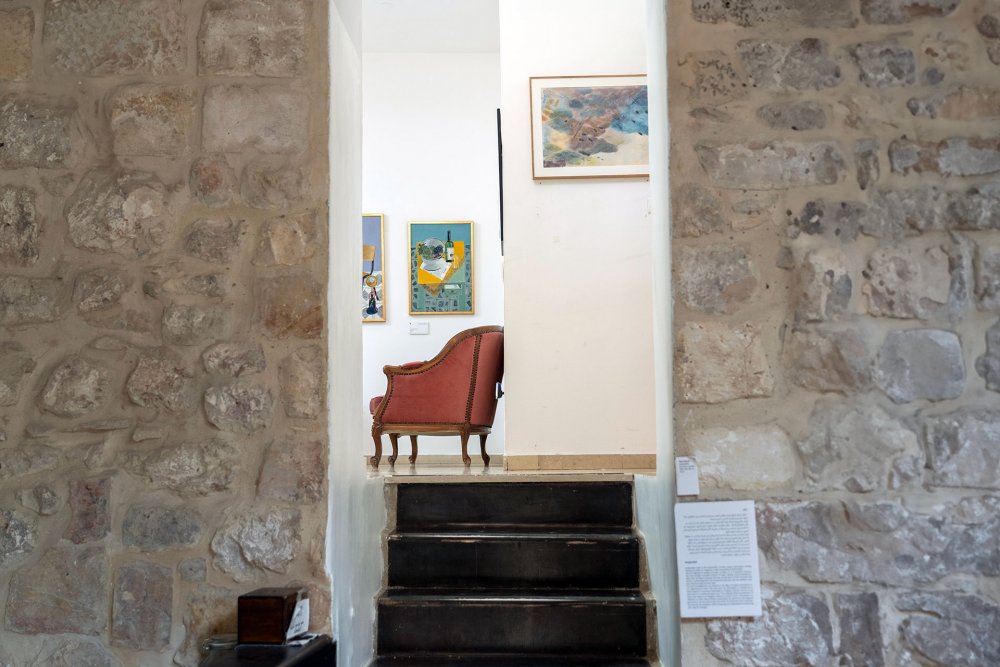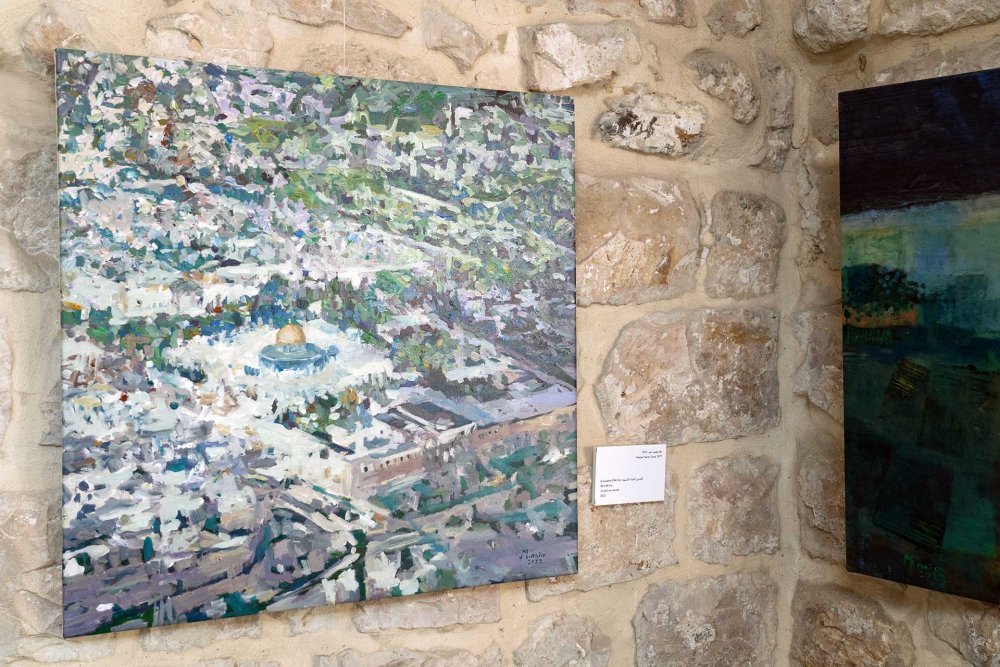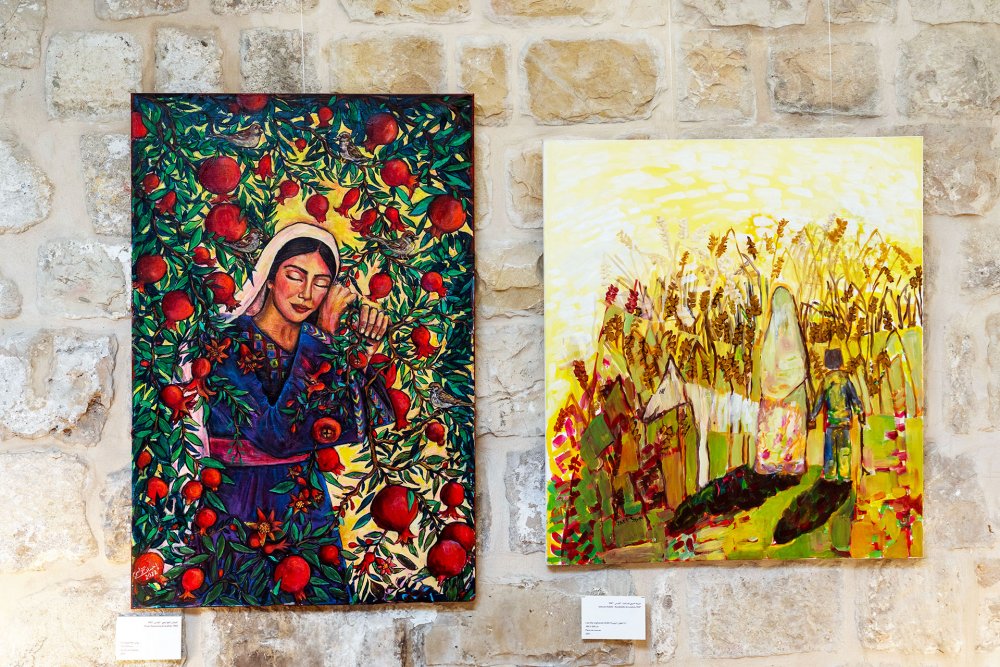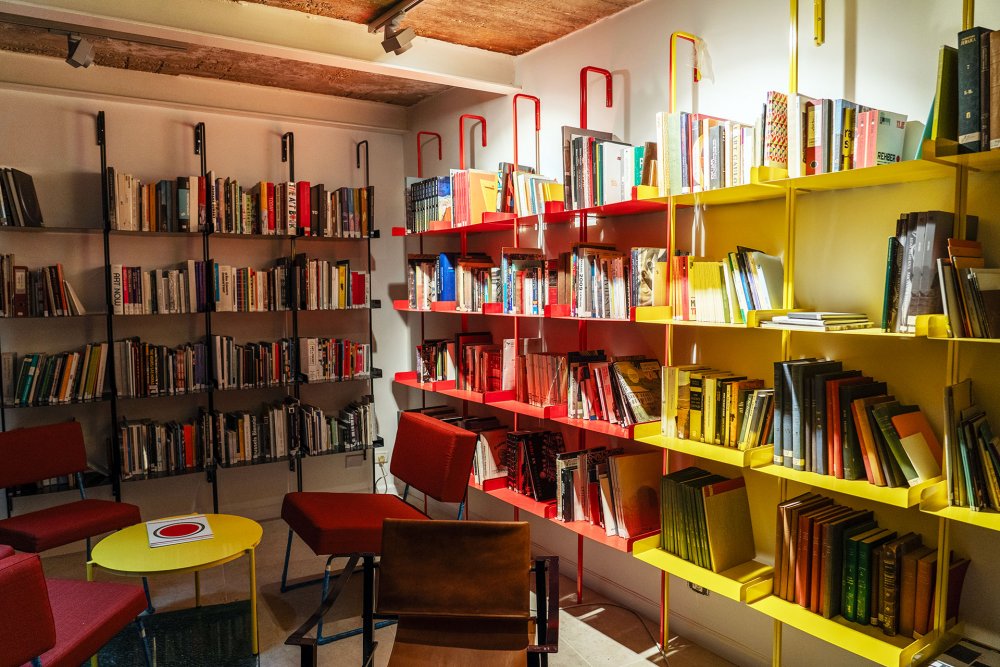“The road to al-Ma‘mal Foundation within the Old City walls by the New Gate is like taking a walk down memory lane,”5 says film program manager Muayad Alayan. Muayad is a well-accomplished Palestinian Jerusalemite filmmaker and producer. Besides his pioneering films, he has also had an impressive film teaching career, including in cinematography and lighting, most notably at Dar al-Kalima University in Bethlehem. His recent involvement at al-Ma‘mal Foundation is an important step for cinematic progress in Jerusalem.
The two-year film production program that al-Ma‘mal Foundation recently launched under Muayad’s management offers 15 courses. These include preproduction, editing, directing, production design, and music composition for film and cinema. Although it is a two-year program, it is by no means traditional, Muayad is quick to clarify. “One does not have to stick to the two years; it is open to a wide range of people and offers a flexible plan.” As described by Muayad, the program targets both newly emerging filmmakers as well as seasoned professionals. “It is also for artists who may want to cross over specific fields in cinema or film production,” he explains.
Already this year, Muayad has given two of these courses, namely, scriptwriting and film appreciation.
Levon Kalaydjian, recently employed as the Foundation’s public relations manager, is himself quite excited about the programs. Thanks to the scriptwriting course, in which he participated, Levon shares that his dream to document the history of his late grandfather (a boxing champion who served as a general in the Jordanian army) may soon come to fruition. This is due to the great effort and creative energy he derived from his experience in the course, he notes.

